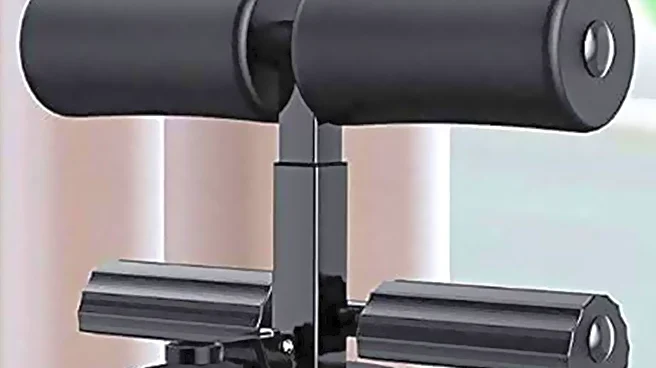What is the story about?
What's Happening?
Kara Egan, CEO of Teal Health, has developed the Teal Wand, an FDA-approved cervical screening test that can be conducted at home. This innovation aims to address the declining rates of cervical cancer screenings in the U.S., exacerbated by the COVID-19 pandemic. The Teal Wand allows women to collect samples at home, which are then analyzed with the same accuracy as tests conducted in a doctor's office. Egan emphasizes the importance of accessibility, noting that logistical barriers such as work commitments and childcare often prevent women from attending in-person screenings. The Teal Wand process includes an initial screening with a doctor to ensure proper use and eligibility, followed by tele-health consultations for discussing results.
Why It's Important?
The introduction of the Teal Wand is significant as it addresses the critical issue of accessibility in women's healthcare. By enabling at-home cervical cancer screenings, Teal Health is potentially increasing the screening rates, which have been declining. This innovation could lead to earlier detection and treatment of cervical cancer, ultimately reducing mortality rates. The initiative also highlights the importance of considering non-financial barriers to healthcare access, such as time and logistical constraints, which can be as prohibitive as cost. By providing a convenient and reliable alternative to traditional screenings, Teal Health is setting a precedent for other healthcare innovations aimed at improving accessibility.
What's Next?
Teal Health plans to expand the availability of the Teal Wand, potentially partnering with healthcare providers and insurance companies to integrate the service into standard healthcare offerings. As awareness grows, the company may face challenges related to regulatory compliance and ensuring widespread adoption. Stakeholders, including healthcare providers and policymakers, may need to address potential concerns about the accuracy and reliability of home-based tests compared to traditional methods.
Beyond the Headlines
The development of the Teal Wand raises broader questions about the future of healthcare delivery, particularly in the realm of preventive care. It challenges traditional models by prioritizing patient convenience and autonomy, which could lead to shifts in how healthcare services are structured and delivered. Additionally, it underscores the need for healthcare systems to adapt to technological advancements that empower patients to take a more active role in their health management.















